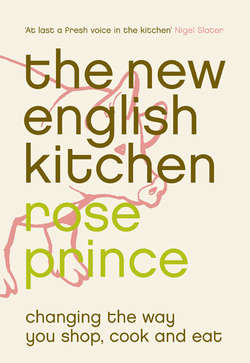Читать книгу The New English Kitchen: Changing the Way You Shop, Cook and Eat - Rose Prince - Страница 156
herbs and english cookery
ОглавлениеHerbs have always belonged in English cooking. There is a general idea that the English are a nation of rehabilitated mistresses of the bland, rescued by Elizabeth David’s Book of Mediterranean Food in 1952. Wrong – David herself was perfectly aware of that, as her later books testified. If you believe some of what is said about English cooking, we are masters of roasting joints but otherwise stole everything from the French and Italians. Many people believe the first statement and are subsequently shamed into accepting the second. But this is not an argument about cookery – who made custard first, the English or the French – it is about the real tools: ingredients.
Visit a house that still has its eighteenth-century gardens and you will see a herb or knot garden. Fresh herbs once had a vital place not only in the kitchen but also in the medicine chest. They were used in early recipes for salads along with edible flowers, and in sauces, soups and stuffings. Cooking with them was considered an art. I blame the puritanism that invaded the kitchens of this country in the nineteenth century for the disappearance of fragrant green leaves from our cookery – the twisted concept that exotically flavoured food is vulgar, suspect and bad for the gut. In the southern Mediterranean, aromatics are used to bridge the gap between humble, locally grown ingredients and elegant cuisine, creating an egalitarian cookery available to people on every income level. The prime example is the addition of basil leaves to a plate of sliced tomatoes, refining and cultivating the salad.
Now to those silly plastic packs of herbs that hang on hooks in supermarkets. Hopelessly, guiltily smitten is how I feel about them. They make wonderful food possible, yet I know they should be in big, generous bunches or, better still, in pots on my windowsill. I do grow a few herbs in pots but what I really want is a knot garden because I use a lot of them.
If you can, buy herbs in bulk from Middle Eastern shops. Many of them are grown in the Middle East and arrive here impeccably fresh. Wrap them in damp newspaper and then in a plastic carrier bag – they will keep for at least a week. They are ten times cheaper than the triangular, plastic containers sold in supermarkets and it is well worth lobbying the supermarket you use for larger bunches of a wide variety of herbs. Insist!
